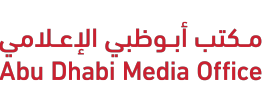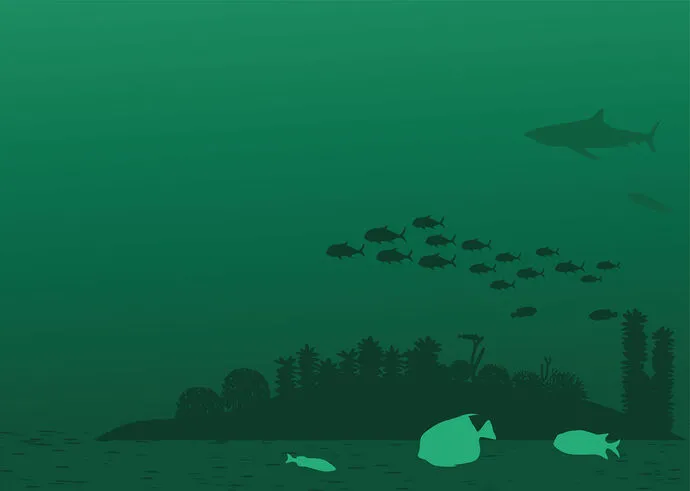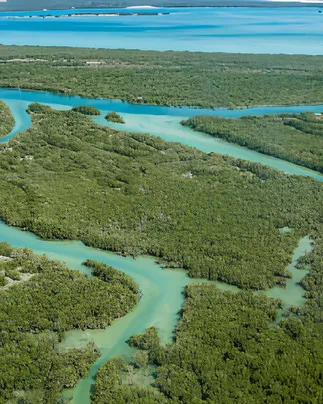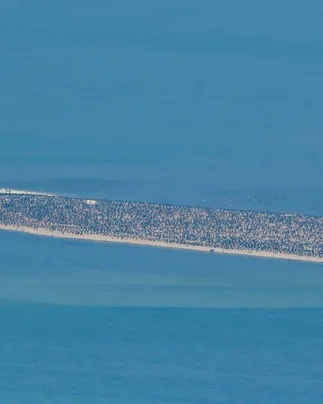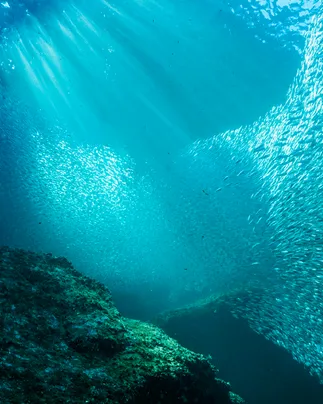The Environment Agency - Abu Dhabi (EAD) has begun implementing an executive regulation regarding marine water quality in Abu Dhabi.
The regulation, which was recently approved by the Agency’s Board of Directors, aims to preserve the quality of ambient marine water and sediments by regulating liquid discharges from land-based activities to the marine environment. In addition, the Agency aims to combat the deterioration of ambient marine water and sediments quality by applying measures to environmental impact assessment studies and environmental licensing applications. The regulation strengthens the enforcement measures taken by the Agency, including the environmental assessment, licensing and inspection procedures for development projects and industrial establishments to ensure compliance.
Her Excellency Dr. Shaikha Salem Al Dhaheri, EAD's Secretary General said: “The executive regulation regarding marine water quality was developed to reinforce the regulatory and supervisory framework that EAD seeks to implement in coordination with all stakeholders in the Emirate. Through the application of environmental standards for ambient marine water and sediment in protected areas, as well as in public areas outside designated marine protected areas, these standards are now considered the first of their kind in the region”.
Dr. Al Dhaheri added “The regulation also includes standards for liquid discharges from land-based activities to the marine environment – another first of its kind for Abu Dhabi. These standards have been developed based on international best practices for the protection of marine ecosystem and public health. In addition, the regulation includes measures to overcome the deterioration of marine water quality and to provide all available alternatives for sustainable management of liquid discharges before being disposed of to the marine environment”.
She added: "The issuance of the regulation is among other efforts made by EAD, in cooperation with strategic partners in the Emirate. These efforts include protecting the marine environment in designated areas, contributing to preserving marine biodiversity and enhancing fish stocks to help achieve food security, which is also in line with the UAE’s strategy plans. It also contributes to enhancing the role of the fishing communities and ensuring the sustainability of fishing activities, which are part of the Emirate’s heritage. By improving marine water quality, the agency looks forward to enhancing recreational and tourist activities, marine sports and other uses, which in turn will raise the level of satisfaction of both residents and tourists through the services provided by the government.”
Her Excellency Dr. Al Dhaheri added that the EAD adopted a pioneering methodology in developing the regulation, the approach included extensive coordination with stakeholders in the Emirate, as well as preparation of implementation plans at both stakeholders' level and the Agency level, taking into consideration roles and responsibilities of all governmental agencies. The implementation plans include actions and initiatives that will be implemented over the next two years, which will positively affect current procedures in force at the Agency and other Abu Dhabi authorities. The Agency has also prepared a plan to assess the impact of the regulation while ensuring that ongoing monitoring of the goals contained in the regulation are achieved.
Furthermore, the agency has developed plans for communication and raising awareness, regarding the requirements for the regulation’s implementation, targeting multiple local community groups. The plans include specific messages that the agency seeks to convey to these groups to raise awareness about the importance of preserving the marine environment as well as the quality of marine water.
Eng. Sheikha Al Hosani, Executive Director of EAD's Environment Quality Sector, said: “For more than 15 years the Agency has implemented a comprehensive and integrated programme to monitor water quality and marine sediments. This includes studying and evaluating short-term and long-term changes in the quality of marine water and providing the necessary data to support decision-makers in taking the necessary measures to preserve and sustain the marine environment. In addition, EAD operates an automated network of buoys that act as online monitoring and an early-warning system for red tides and algal growth cases. The Agency also carries out studies and research in various fields related to marine water quality. The results of these researches and studies are published in local, regional and international conferences and forums. Nearly 20 scientific papers have been published in the best international scientific journals".
The Emirate of Abu Dhabi has witnessed unprecedented growth during the past decades, and this development boom has been accompanied by increased growth in the industrial and commercial sectors. The population growth and change in lifestyle contributed as well in increasing demand on natural resources such as water, energy and others. In light of the major development in recreational, development and industrial activities, and in tourism and maritime transport sectors, dependence on coastal activities also increased. This had adverse impacts on the environment in general, and the marine environment in specific. The issuance of the regulation is part of the efforts made by EAD, the competent authority responsible for preserving and sustaining the environment to respond to these challenges, while improving environmental performance indicators in Abu Dhabi.
